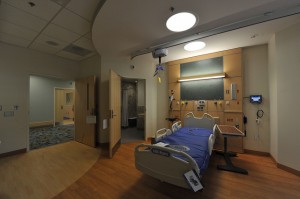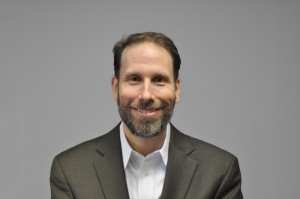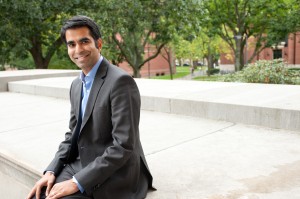How Many Doctors Does It Take to Start a Healthcare Revolution? A New Freakonomics Radio Podcast

(Photo: official U.S. Navy page)
Our latest Freakonomics Radio episode is called "How Many Doctors Does It Take to Start a Healthcare Revolution?" (You can subscribe to the podcast at iTunes or elsewhere, get the RSS feed, or listen via the media player above. You can also read the transcript, which includes credits for the music you'll hear in the episode.) The gist of the episode: The practice of medicine has been subsumed by the business of medicine. This is great news for healthcare shareholders — and bad news for pretty much everyone else.
In our previous episode, we looked at the increasing use of RCTs, or randomized controlled trials, in the realm of healthcare delivery. But as conversation went on, it began to turn into a broader indictment of our healthcare system. So this week we are continuing that conversation, with a new set of questions:
- We generally assume that if you're not getting healthcare, you're worse off – but is that necessarily the case?
- How much healthcare is too much care? And how valuable is a "less is more" doctrine?
- When you start to peel a few layers off the U.S. healthcare system, how does it really work? And who does it really serve?

Jeffrey Brenner, a family doctor and community force in Camden, N.J., wants a healthcare revolution.
(photo: Camden Coalition of Healthcare Providers)
Appearing once again in this episode is Jeffrey Brenner, a family doctor in Camden, N.J., who through his Camden Coalition of Healthcare Providers is trying to radically improve outcomes for low-income patients. But that's not all Brenner is trying to do. He is calling for nothing less than a healthcare revolution, shifting the system from a top-down profit-first industry to a back-to-earth healing enterprise. Here are just a few choice cuts from what Brenner tells us:
BRENNER: I'm a huge student of medical history. And when you read medical history it's very humbling. We have screwed stuff up and hurt people over and over and over, and we've done it with our arrogance. So I think, you know, we're still doing it unfortunately.
And:
BRENNER: In our system, we have an asymmetry in price. So we pay a whole lot of money if you cut, scan, and hospitalize patients. If they have procedures, if they go through machines, we pay an enormous amount of money for those things. If you talk to a patient, you actually lose money in many instances. So when a cardiologist walks in the room and talks to your family member, that's actually a loss leader. That doctor is losing money every moment they stay in a room with your family member. The way they make money is by getting you out of that room and back into the scanner that they're leasing in the back of the office. That's not their fault. That's the fault of how we've structured the incentives in the system.
And:
BRENNER: As the baby boomers are aging and people in their 40's are caring for their parents and watching what the system does to them, I think there's going to be a growing anger, you know, as the copays, and deductibles, and employee contributions get higher and higher. I think the goodwill underpinning the system is going to begin to break down. You know, there comes a point in a system in America where it no longer serves any of the purposes that it was originally set up to serve. And America does disrupt things. You know, I don't see a lot of horse and buggy manufacturers. I don't see the steel industry here, right? No one saved Blockbuster. I mean, there will come a point when sooner or later we're going to let this thing go.

Anupam Jena, an m.d./economist, wanted to know the effect of big cardiology conferences. His findings may surprise you.
(photo: Suzanne Camarata)
You'll also hear from Anupam Jena; he trained as both an m.d. and an economist, and now practices medicine at Mass General and teaches at Harvard. Jena is a co-author of a JAMA Internal Medicine paper that looked at what happens to patients with acute heart problems during one of the two big annual cardiology conferences. (Thanks to Craig Feied for bringing this paper to my attention.) In other words: when the doctor's away, do patients pay? Jena's assumption was yes, that the absence of many top cardiologists would result in higher mortality for acute heart patients. The data, however, told a different story. With high-risk heart failure, for instance …
JENA: What we found is that if you're hospitalized on a cardiology meeting date, your mortality is about 17% at 30 days, 17 to 18%. Whereas if you're hospitalized just a few days before or a few days after, your mortality is closer to 25%. So that's a very large difference.
We ask Jena why acute heart patients have a better chance of surviving when so many cardiologists are traveling. (Short answer: when it comes to medicine, even with an acute heart condition, it may be that less is generally more.) We also speak with the two organizations that hold these conferences (the American Heart Association and the American College of Cardiology), and we ask some docs at the latest ACC conference what they think of Jena's findings.
You'll also hear about the fascinating research done by Amir Hetsroni, an Israeli professor of communications. He and his students watched numerous episodes of ER, Chicago Hope, and Grey's Anatomy, keeping detailed coding books on every patient – their race, approximate age, their malady, the treatment, and whether they lived or died. Their resulting paper was called "If You Must Be Hospitalized, Television Is not the Place." This, like many facts in this episode, may well surprise you — and change the way you think about modern healthcare.

No comments:
Post a Comment